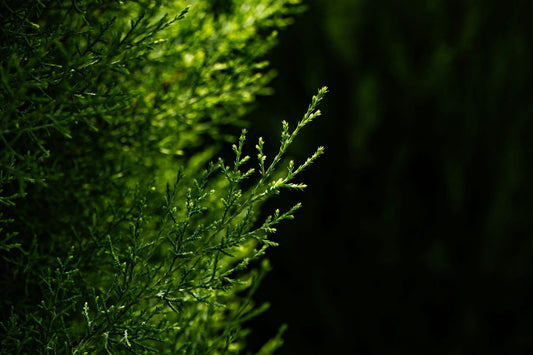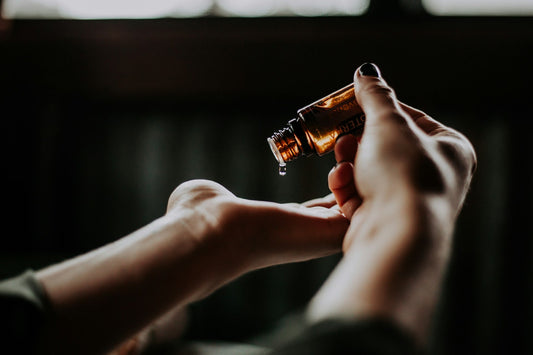Palmarosa Oil
Palmarosa essential oil, derived from the Cymbopogon martinii plant (a grass closely related to lemongrass and citronella), is an underrated gem in the world of natural wellness. Steam-distilled from the grassy leaves, palmarosa oil emits a soft, floral, rosy aroma with grassy undertones—often compared to rose, but at a fraction of the cost. Beyond its fragrance, palmarosa is prized for its soothing, regenerative, and antimicrobial properties, making it especially valuable in skincare and emotional support.
Chemical Profile of Palmarosa Essential Oil
Palmarosa is rich in monoterpenes and alcohols, which give it its unique blend of calming and purifying qualities. Its main components include:
-
Geraniol – 70–85%
A powerful alcohol known for its antibacterial, antifungal, and anti-inflammatory properties. Geraniol also contributes to the rosy scent and is often used in perfumery. -
Linalool – 1–5%
Offers calming, antispasmodic, and skin-soothing effects. Enhances the oil's gentle nature. -
Geranyl Acetate – 1–10%
Provides mild sedative and anti-inflammatory properties, while contributing to the soft floral aroma. -
Farnesol – trace amounts
Adds antimicrobial and skin-rejuvenating properties, often valued in high-end cosmetics.
This chemical synergy makes palmarosa especially well-suited for skin care, emotional balance, and immune support.
Key Benefits of Palmarosa Essential Oil
1. Skin Regeneration & Moisture Balance
Palmarosa oil is deeply hydrating and supports skin cell regeneration, making it ideal for dry, aging, or damaged skin. It helps balance sebum production—great for both oily and dry skin types.
2. Antibacterial & Antifungal
Thanks to its high geraniol content, palmarosa has strong antimicrobial activity. It's effective against bacteria and fungi that can cause acne, eczema, or fungal infections like athlete’s foot and candidiasis.
3. Stress Relief & Emotional Wellbeing
With its rosy, calming scent, palmarosa has subtle antidepressant and calming effects. It helps soothe nervous tension, anxiety, and emotional fatigue, making it ideal for diffusing or blending into relaxation oils.
4. Immune Support
Its antiviral and antibacterial qualities make it useful during cold and flu season. Palmarosa supports the immune system and can be used in inhalations, chest rubs, or body oils.
5. Natural Deodorizer
The pleasant floral-grassy aroma and antimicrobial properties make it a wonderful natural deodorant or room freshener component.
Popular Uses of Palmarosa Essential Oil
-
Facial Serums & Creams – Especially for dry, mature, or acne-prone skin
-
Aromatherapy Diffusion – Promotes emotional calm and reduces anxiety
-
Massage Blends – Nourishes the skin and soothes tension
-
DIY Deodorants – Combines well with baking soda, shea butter, and arrowroot
-
Foot Soaks – Great for soothing tired feet and fighting fungal infections
Safety Considerations
-
Generally non-toxic and non-irritating when properly diluted.
-
Avoid use during pregnancy or for very young children without professional advice.
-
Patch test recommended for sensitive skin.
-
Dilution rate: 1–2% for facial care, 2–3% for body applications.
Palmarosa essential oil is a versatile and gentle powerhouse—offering a wealth of skin benefits, emotional support, and natural antimicrobial action. With its rosy aroma and strong healing properties, it's an essential addition to any natural perfumery, skincare formulation, or aromatherapy toolkit.
WHAT WE USE?
Every Lazaval perfume is a harmonious blend of these natural elements, designed to provide a luxurious and holistic fragrance experience. Discover the full spectrum of our natural ingredients on our Ingredients Page.


